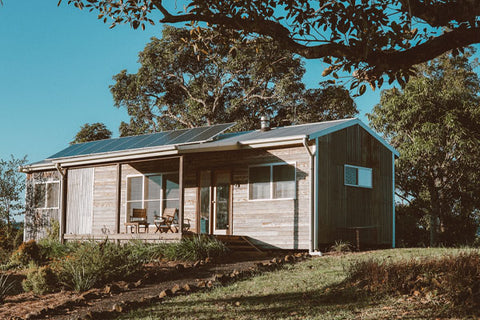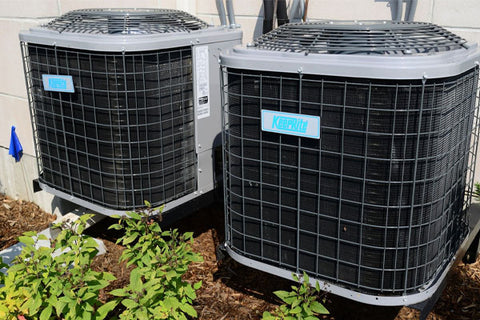Smart Home Decor Choices That Save You Money

Sure, this year might seem like the economy is flagging, but thanks to the Inflation Reduction Act, homeowners can find tax breaks and other savings.
“The Inflation Reduction Act is a legislative initiative passed by the White House in September of 2022 to help small businesses lower their costs and increase their resiliency,” said Dana Ronald, CEO of the Tax Crisis Institute. “It does this primarily through targeted tax incentives and deductions.”

Photo credit: Pexels/Pixaby
By investing in energy efficiency upgrades, homeowners can save up to 30% on their utility bills over a year. Plus, they can take advantage of tax breaks on solar panels and other renewable energy installations. “Solar panel installation often results in a 20% to 30% return on investment, and homeowners can benefit from various federal, state and local tax credits that reduce the total cost of installation,” said Ronald.
Some of the things you can do include:
1. Buying appliances that qualify for incentives, such as electric cooktops and ranges, and heat pump dryers.
2. Installing a Heating, Ventilation and Air Conditioning (HVAC) system.
3. Adding solar panels to your home.
“The benefits of installing these appliances besides tax incentives and rebates is to lower energy costs and build a clean energy economy through implementation of more efficient technology and environmentally friendly practices.,” said Mitchel Hoffman, senior marketing manager at Blue Raven Solar.
“Switching to more efficient household appliances can save you hundreds of dollars on your energy bills because you reduce the overall amount of energy used," he said. "By using less electricity, less greenhouse gases are emitted into the atmosphere reducing climate change and resulting in a positive impact on the environment.”

Photo credit: Elle Hughes/Pexels
Additionally, the U.S. government appropriated funds to support the High Efficiency Electric Home Rebate Program (HEEHRP) overseen by state energy offices to encourage household improvements. This program grants each homeowner up to $14,000 in rebates for Energy Star appliances, upgrades and improvements.
For example, the benefit of buying an HVAC system, according to Hoffman, is to effectively heat and cool your home and maintain a consistent temperature, saving you money on your monthly electricity costs. By installing such high-efficiency equipment, homeowners can receive a credit of up to $500 through the Energy Efficient Home Improvement Tax Credit (25C).
Installing a new HVAC unit can also help a home cut their entire electric bills by 20% and can increase its value by $10,000, said Bobby Horton owner of Triangle Remodeling Service.
The benefits of a new HVAC system are more than financial, too. “People with allergies can enjoy hospital quality air with the addition of HEPA (High Efficiency Particulate Air) filtration,” said Horton.

Photo credit: Pixaby
A Home Audit Can Lead to Savings
Homeowners should also consider doing an energy audit to identify energy waste and potential savings opportunities. According to Shaun Martin, owner and CEO of We Buy Houses in Denver, this usually involves several steps, including:
-
Assessing the home's needs and potential for efficiency improvements.
-
Inspecting the structure, heating and cooling systems, insulation, plumbing and electrical systems to identify areas that need improvement.
-
Calculating a home's energy use by analyzing utility bills and other data.
-
Recommending specific solutions or upgrades to help reduce energy waste.

Photo credit: Tayeb Mezahdia/Pixaay
You can conduct an energy audit of your home by doing it yourself (DIY) or contacting a professional or your power company. Energy companies will send an inspector to your home to evaluate your power bill and identify which home appliances and electronic devices use the largest amounts of electricity. After the analysis, the inspector will provide ways to reduce your usage.
Horton recommends asking the following questions during an audit:
1. Are there any areas where I could increase insulation to improve energy efficiency?
2. Are my windows and doors properly sealed?
3. What kind of improvements can I make to reduce my heating/cooling costs?
4.What kind of energy efficient appliances should I consider purchasing?
5. What type of renewable energy systems would be the most cost effective?
6. Are there any other ways to reduce my home’s carbon footprint?
Check out this guidebook for a full list of incentives and deductions in the Act.
If you are grieving your Long Island property, why not lower your assessment by using Katz’s Taxes?
Read more about smart homes on our blog. Featured photo by Clay Elliot/Unsplash
Share
Get on the list
Sign up for our newsletter and we’ll keep you up to date on the latest news and exclusive offers!

Leave a Comment